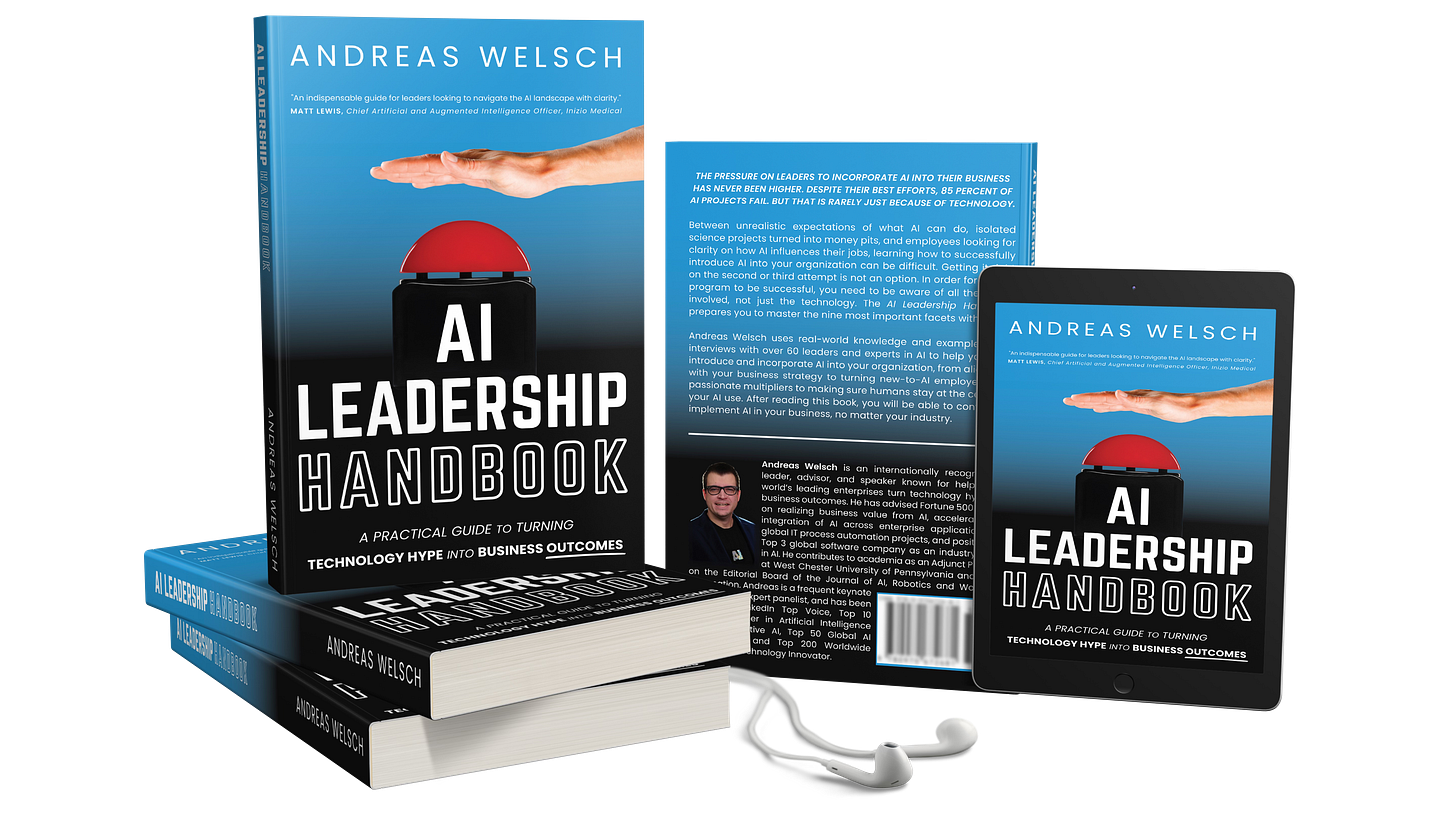Between Pressure And Passion: Driving AI Innovation Without Sacrificing Mental Health
Balancing Fast-paced Work Environments with Personal Mental Wellness
The pressure on professionals and leaders working in the AI space is immense. Because of the pace of innovation that AI labs set, most organizations feel they are behind on their own innovation journey. Doing more and faster to catch up with the market reality is a race—a race to the bottom for many.
A few weeks ago, a former colleague shared with me how humbling it is working on AI innovation at this time in the tech industry—a once-in-a-career opportunity—and how unsustainable the current pace is at the same time. How can we ensure that our mental well-being is preserved while navigating these challenges?
Joe Reis posted about similar experiences in his network a few weeks ago. I invited him to share more about what he’s seeing and hearing at the intersection of passion and burnout. Here's what we talked about...
Being a Human in the Workplace
Amid the pressure to accelerate, catch up, and deliver AI programs (because your competitors are), the most critical factor gets lost: humans. It’s a contradictory situation.
Because you need the best and brightest people to help you catch up and advance your AI program (at any level!). Yet, leaders, as well as individual contributors, often find themselves caught in the corporate machine, feeling the relentless pressure to perform. This high-pressure environment puts them closer and closer to burning out—and the organization is faced with the opposite: higher absenteeism, higher detachment, and an organizational culture that can easily pit leaders and individual contributors against each other.
Effective leadership hinges on understanding team members as people. Taking the time to foster personal relationships within the team can be transformative. Leaders should make a concerted effort to connect, understand, and celebrate the individuals that contribute to their organization's success.
Leaders need to engage in "non-scalable” tasks such as regularly checking in on their team members. Those check-ins are not about the status of a task or project, but rather taking time to genuinely care, acknowledging the humanity in each of us.
Listen to the Audiobook: AI Leadership Handbook
Andreas Welsch uses real-world knowledge and examples from interviews with over 60 leaders and experts in AI to help you both introduce and incorporate AI into your organization, from aligning it with your business strategy to turning new-to-AI employees into passionate multipliers to making sure humans stay at the center of your AI use. After listening to this audiobook, you will be able to confidently implement AI in your business, no matter your industry.
Investing in Foundational Capabilities
AI is helping many leaders realize that a monumental shift is about to happen in their industry and that they need to act. It’s an important lever for driving (overdue) change.
The risk is chasing AI as a shiny object while neglecting the foundational element that makes it effective: quality data. Companies need to align their data management with their aspirations for AI deployment.
Leaders and professionals alike are bearing the brunt of that tension. They are being asked to innovate while the company is challenged (or reluctant) to invest in foundational efforts first.
» A lot of companies want to do AI, but most are barely doing BI. This is still the challenge. You have the data systems that are pretty old and now you're going to throw LLMs and AI on top of these same data systems—and miraculously things are going to happen? «
—Joe Reis
Leaders need to actively work on achieving solid data governance, ensuring data quality, and properly modeling data. It’s about creating a strong backbone for any transformative technology.
When management places emphasis on data integrity, the potential for AI to drive meaningful outcomes is greatly enhanced. As a result, we can start to imagine a future where technology enhances our capabilities rather than simply adding to our stress.
Finding Human Ways to Integrate AI
As AI increasingly becomes a cornerstone of many organizations, it’s critical that it is integrated thoughtfully. This involves asking not just, "How can we utilize AI to cut costs?" but also, "How can we do this in a humane way?"
Leaders need to remember that each decision made regarding AI has an impact on real people—employees, customers, and the community. Organizations need to create a culture where the focus is not solely on efficiency and profit but also on the humanity within these structures. But that might seem like a counterintuitive aspect.
It requires crafting policies and strategies that prioritize enhancing the workplace rather than simply automating it. Consider staff members as assets, leveraging their knowledge, capabilities, and creativity alongside AI tools.
Leaders should be transparent about AI initiatives, ensuring team members feel valued and informed. This balance between human resources and AI can create an environment where innovation thrives without sacrificing individual well-being.
Summary
This journey through the increasing demands of technological advancement highlights three crucial steps for professionals and leaders: be a human in the workplace and foster connections; prioritize proper data management to create a solid foundation for AI; and integrate technology in a manner that values empathy and humanity.
As you move forward, keep these insights in mind. Take the time to connect with your colleagues, examine your data environments, and implement AI thoughtfully. These are not just lofty ideals; they form the foundation of a sustainable, prosperous workplace in which everyone can flourish and be mentally well.
How do you balance the demands of business, leadership, and personal well-being?
PS: I recognize that there is so much more to this topic than a newsletter or a single podcast episode can cover. Although many companies offer employee assistance programs (e.g., for mental health), it can be difficult for individuals to utilize them for various reasons or speak out about the tension between passion and pressure.
Listen to this episode on the podcast: Apple Podcasts | Other platforms
Explore related articles
Become an AI Leader
Join my bi-weekly live stream and podcast for leaders and hands-on practitioners. Each episode features a different guest who shares their AI journey and actionable insights. Learn from your peers how you can lead artificial intelligence, generative AI, agentic AI, and automation in business with confidence.
Join us live
February 18 - Eduardo Ordax (Generative AI Lead at AWS) will join and share how you can build your first AI agents.
March 11 - Dan Sodergren (Future of Work Expert) will join and share how AI agents are reshaping our work forever.
March 18 - Tomas Gogar (CEO & Co-Founder of Rossum) will be on the show. [More details to follow…]
Watch the latest episodes or listen to the podcast
Follow me on LinkedIn for daily posts about how you can lead AI in business with confidence. Activate notifications (🔔) and never miss an update.
Together, let’s turn hype into outcome. 👍🏻
—Andreas









